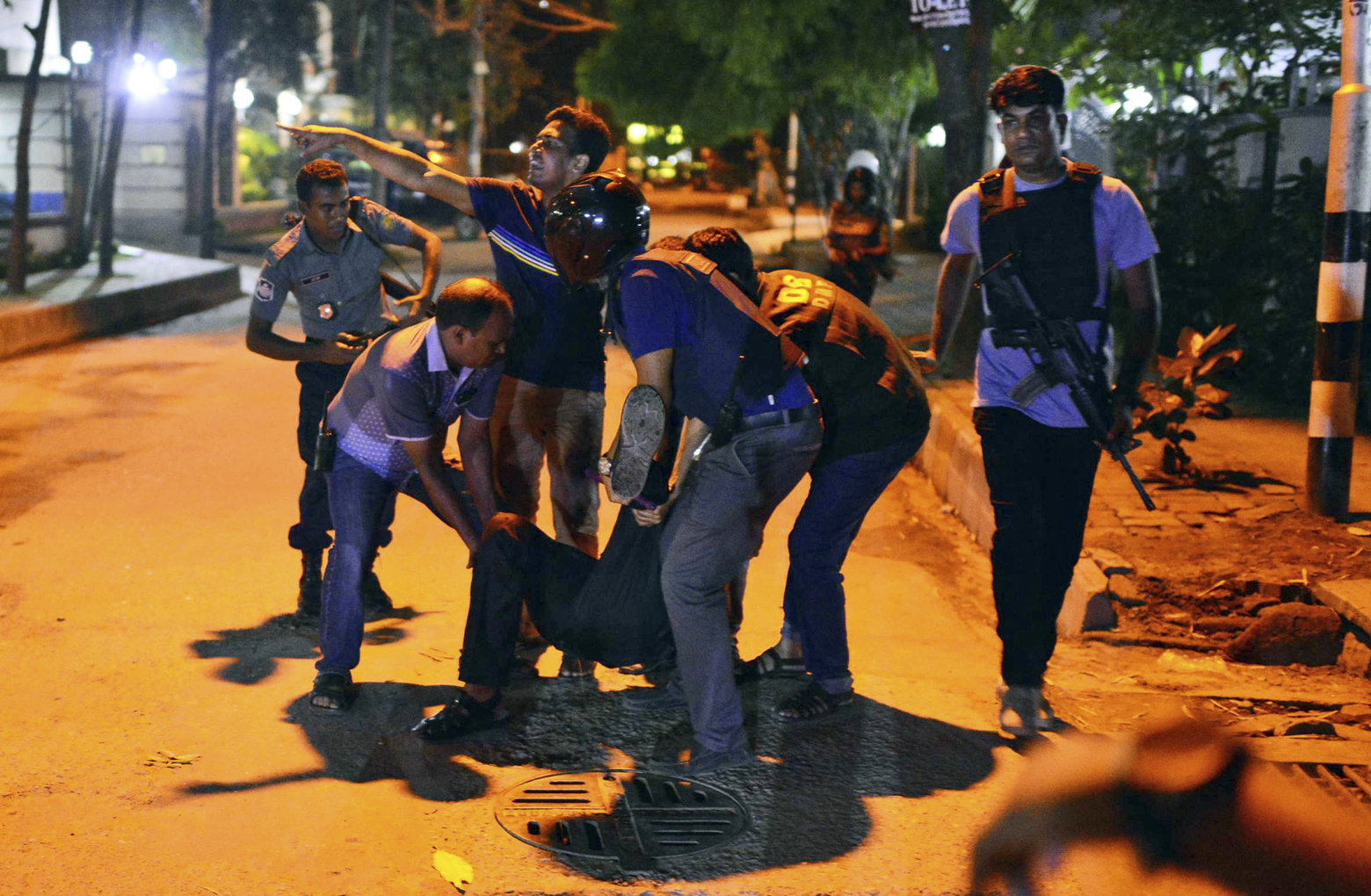28 Killed In Dhaka Cafe Attack; Extremism Comes Home To Roost
NEW DELHI: An attack on a cafe in Dhaka has left at least 28 people dead, including 20 foreign hostages. Brig Gen Naim Asraf Chowdhury told a news conference on Saturday that six militants and two police officers were killed, and 13 people were rescued.
At the time of writing, the operation to end the 12 hour siege was confirmed as over. Gunmen raided the Holey Artisan Bakery on Friday night, with 100 Bangladeshi commandos involved in the counteroffensive. “The terrorists killed the civilians last night. We have recovered huge cache of IED explosives and AK-22 assault rifles,” Chowdhury said.
The Brigadier said that six militants and two police officers were killed, and 13 people were rescued.
According to Lt Col Tuhin Mohammad Masud, the officer in charge of Bangladeshi commandos, the hostages rescued include a Japanese citizen and two Sri Lankans. Details on the hostages that were killed have not yet emerged, although initial reports suggest seven Italians were among those taken hostage at the cafe, which is popular with foreigners.
Bangladesh Prime Minister Sheikh Hasina addressed a news conference saying, “We were able to save 13 people ... and of these terrorists six of them died on the spot, they died right there.” Hasina added that one of the gunmen was captured alive.
The Islamic State claimed responsibility for the attack, according to its media branch, Amaq. Several officials have cast doubts on the authenticity of the claim.
The context of Bangladesh -- a theoretically secular country with a heavy Islamist presence -- needs to be considered. Foremost in this consideration is the role of the Jamaat-e-Islami. The Jamaat is the largest Islamist political party in Bangladesh. It is said that the predecessor of the party (Jamaat-e-Islami Pakistan) strongly opposed the independence of Bangladesh and break-up of Pakistan. In 1971, it collaborated with the Pakistani Army in its operations against Bengali nationalists and pro-liberation intellectuals.
Upon the independence of Bangladesh in 1971, the new government banned Jamaat-e-Islami from political participation and its leaders went into exile in Pakistan. Following the assassination of the first president and the military coup that brought Maj. Gen. Ziaur Rahman to power in Bangladesh in 1975, the ban on the Jamaat was lifted and the new party Jamaat-e-Islami Bangladesh was formed. Its leaders were allowed to return. Abbas Ali Khan was the first Amir of Jamaat-e-Islami Bangladesh. The Jamaat agenda is the creation of an "Islamic state" with the Sha'ria legal system, and outlawing "un-Islamic" practices and laws.
In the 1980s, the Jamaat joined the multi-party alliance for the restoration of democracy. It later allied with Ziaur Rahman's Bangladesh Nationalist Party and Jamaat leaders became ministers in the two BNP-led regimes of prime minister Begum Khaleda Zia (from 1991 to 1996 and from 2001 to 2006). Its popularity has decreased and in 2008, it won only two of 300 elected seats in Parliament. In 2010 the government, led by the Awami League, began prosecution of war crimes committed during the 1971 war under the International Crimes Tribunal. By 2012, two leaders of the BNP and eight of Jamaat had been charged with war crimes, and by March 2013, three Jamaat leaders had been convicted of crimes. In response, the Jamaat has held major strikes and violent protests across the country, which have led to more than 60 deaths.
The trials have widened a gulf between proponents of a more secular nature of Bangladesh’s nationalism and Islamist groups, with violence often targeting secular writers, bloggers, atheists and others. Since February 2013, more than 40 people have been killed in such attacks. In April this year alone, five such intellectuals have been hacked to death -- with officials pointing a finger to Islamist groups but taking no action to identify and bring the perpetrators to justice.
Although the Islamic State has claimed responsibility for several of these attacks, the context of the widening gulf in constructs of Bangladesh’s nationalism cannot be underplayed. Central to this context is the role and history of the Jamaat.
That said, the War Crimes Tribunal -- set up by Prime Minister Sheikh Hasina in 2010 -- has its own limitations. Hasina’s opponents decry that it is being used for political vendetta. According to the Bangladesh government, about three million people were killed and thousands of women were raped during the 1971 war in which some factions, including the Jamaat-e-Islami, opposed the break from what was then called West Pakistan. The Jamaat on its part denies that its leaders committed any atrocities.
Further, international groups have pointed to flaws with the war crime trials, saying that the accused had little opportunity to defend themselves. A recent statement by a human rights commission of the United States House of Representatives noted that defendants were allowed only a handful of witnesses and were not allowed to cross-examine prosecution witnesses.





